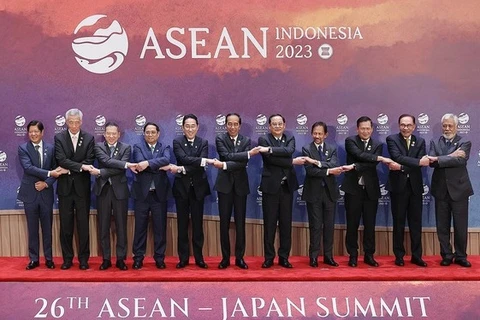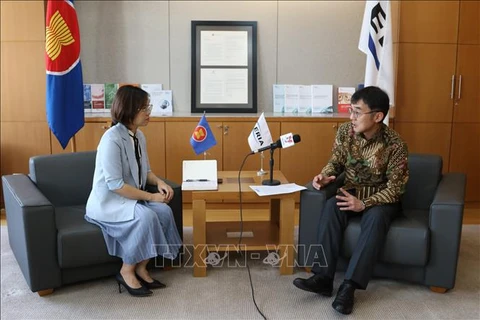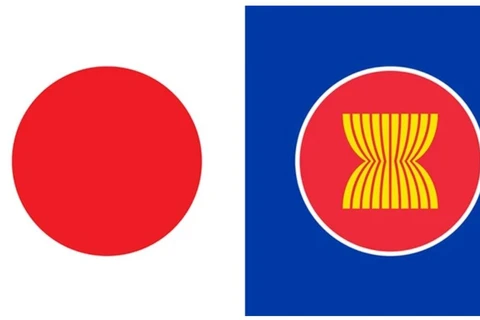Tokyo (VNA) – Leaders of Japan and the Association of Southeast Asian Nations (ASEAN) on December 17 agreed to deepen their relations in economy and security at the Commemorative Summit for the 50th Year of ASEAN-Japan Friendship and Cooperation in Tokyo.
In a "joint vision statement" issued after the summit, the leaders pledged to intensify collaboration in maritime security, strengthen supply chains, promote sustainable energy practices and expand people-to-people exchanges in various sectors.
The leaders reached consensus on stepping up dialogue and cooperation in the field of maritime security. The statement clearly stated that Japan and ASEAN will strengthen dialogue and cooperation to maintain maritime security, safety, and order on the basis of the rule of law, including not hindering freedom and safety of navigation and aviation and commerce.
The two sides will improve awareness of the maritime field as well as cooperation between the coast guard and relevant law enforcement agencies, strengthen collaboration in building maritime capacity, and ensure disputes are solved by peaceful means, without using force or threatening to use force in accordance with widely recognised principles of international law.
They also agreed to cooperate in disarmament and non-proliferation of nuclear weapons, aiming for a world free of nuclear weapons.
In the socio-economic sectors, they will intensify connectivity through quality infrastructure investment, institutional and human resources development and exchange; and make efforts to improve supply chain sustainability, said the statement.
People-to-people exchanges will be enhanced in various fields, including culture and sports. In education, scholarship and student/teacher exchange programmes will be expanded.
They also announced the launch of a new initiative for the next-generation car industry aimed at mapping out strategies to enable ASEAN to continue being a major hub of auto production and exports.
"Based on strong mutual trust, Japan and ASEAN will tackle new challenges," Japanese Prime Minister Kishida Fumio said at a press conference after the end of the summit, adding he is glad that they will take a "new step toward the next 50 years."
Indonesian President Joko Widodo, who served as a co-chair of the summit, said Japan and the bloc will maintain peace and stability in the region while adhering to international law./.
They also agreed to cooperate in disarmament and non-proliferation of nuclear weapons, aiming for a world free of nuclear weapons.
In the socio-economic sectors, they will intensify connectivity through quality infrastructure investment, institutional and human resources development and exchange; and make efforts to improve supply chain sustainability, said the statement.
People-to-people exchanges will be enhanced in various fields, including culture and sports. In education, scholarship and student/teacher exchange programmes will be expanded.
They also announced the launch of a new initiative for the next-generation car industry aimed at mapping out strategies to enable ASEAN to continue being a major hub of auto production and exports.
"Based on strong mutual trust, Japan and ASEAN will tackle new challenges," Japanese Prime Minister Kishida Fumio said at a press conference after the end of the summit, adding he is glad that they will take a "new step toward the next 50 years."
Indonesian President Joko Widodo, who served as a co-chair of the summit, said Japan and the bloc will maintain peace and stability in the region while adhering to international law./.
VNA
























